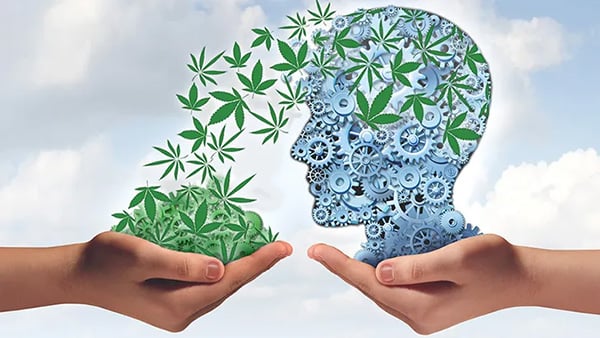
Chemo Brain | Fifth Ave Green House
Using cannabis for “chemo brain”
The University of Colorado Boulder has some new research This shows that medical marijuana for the treatment of cancer not only relieves pain and insomnia, but also improves the so-called “chemo brain”.
“Chemo brain” is a term used by cancer survivors to describe memory and thinking problems caused by chemotherapy. Other terms include “chemo fog” or “brain fog.”
Some symptoms may include:
- General confusion
- Difficulty concentrating
- Short attention span and memory problems
- Difficulty multitasking and learning new skills
- It takes longer to complete daily tasks
- Difficulties with verbal and visual memory
The study is unique in that it looked at over-the-counter cannabis products rather than government-approved medications that contain cannabis. In addition, the researchers did not use synthetic marijuana.
As expected, the researchers found that cancer patients had less pain and better sleep quality. To their surprise, however, the patients had better cognitive abilities. In other words, cancer patients who use cannabis have less “chemo brain.”
Treating the “chemo brain” with cannabis
“It's hard to think when you're in a lot of pain,” said Angela Bryan, the study's lead author. The study found that “when patients' pain decreased after using cannabis, their cognitive performance improved.”
Surveys estimate that up to 40 percent of cancer patients in the United States use marijuana to relieve their symptoms.
Although this was a small study and more research is needed to determine long-term benefits, the results are promising.
As mentioned above, unlike other studies, patients purchased marijuana from local pharmacies. In research facilities, marijuana is often either provided by the government or offered in synthetic variants.
Because marijuana is still illegal at the federal level, marijuana research primarily uses prescription products such as dronabinol or weak government-produced drugs with inadequate sources.
Because patients in this study were able to purchase their own forms of cannabis from a pharmacy of their choice, there was less standardization. However, offering options to patients raises issues that the researchers had never considered.
Cancer patients purchased cannabis from 18 brands for the Chemo Brain study, including baked goods, tinctures, pills, chocolate and gummy bears. The THC content of the products varies, with most containing different proportions of THC and CBD.
“This tells us that people are willing to try anything they think will work, but there isn't a lot of data to tell them what works best for what,” Bryan said.
Method: Cannabis “Chemo Brain”
In the “Chemo Brain” study, researchers used a Dodge Sprinter van as a “mobile laboratory.”
They used the van to visit each patient at home. Participants underwent physical and cognitive tests in the van and were re-evaluated at home after cannabis use. Two weeks later, researchers conducted further follow-up assessments.
Researchers have reached some conclusions from the “chemo brain” study on marijuana. What is clear is that cannabis relieves patients' pain while giving them a “high” feeling. The researchers concluded that the higher the THC levels, the better the patients felt.
What surprised the authors of this cannabis for use in the “Chemo-Brain” study, however, were the long-term effects.
While some people claim that marijuana lowers IQ, this belief appears to be based on unbiased research.
Whenever we have done research in this area, the results have been positive for cognitive function. That is exactly what the researchers found here.
After two weeks of cannabis use, researchers found improvements in pain management, sleep quality and cognitive function.
“We thought we might see problems with cognitive function,” Bryan said. People tend to associate marijuana and chemotherapy with impaired thinking. “But people felt they could think more clearly. That was a surprise.”
The researchers measured objective cognitive functions, including reaction time. They found that the more people's pain was reduced, the more their cognitive abilities improved.
In other words, marijuana helps reduce “chemo brain.”
What's the future like?
While larger controlled trials would be desirable, this small study is very promising. Although cannabis has been accused of impairing short-term thinking, it is clear that cannabis offers long-term benefits for people with acute pain.
The study's lead author, a breast cancer survivor herself, hopes research continues. She fears that most patients are unaware of the effects of cannabis on “chemo brain,” or that they are unaware of other symptoms associated with chemotherapy. Doctors are also hesitant to prescribe cannabis.
However, she was able to use THC and CBD edibles for surgery and chemotherapy. Bryan said she did not take opioids during her cancer treatment.

Post a comment: